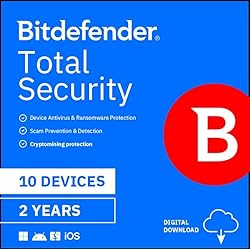Do Antivirus Programs Collect Your Data? Exploring Privacy in the Digital Age
The question, “Do antivirus programs collect your data?” is increasingly relevant as cybersecurity threats grow and privacy concerns mount. Antivirus software plays a crucial role in protecting devices from malware, ransomware, and other cyber threats, but many users worry that their defenses may come at the cost of their own privacy. Understanding how antivirus programs handle your data is essential for making informed decisions about your digital safety.
—
Why Antivirus Programs Need Access to Data
Antivirus solutions are designed to detect, quarantine, and remove malicious software from your devices. To do this effectively, they require access to several layers of your system:
System & Network Scanning
To identify potential threats, antivirus tools conduct regular scans of files, folders, emails, and even network traffic. This means these programs may access sensitive documents or monitor internet activity to protect against emerging threats.
Cloud-Based Threat Detection
Modern antivirus solutions often leverage cloud-based technologies, uploading suspicious files or behavioral data to company servers for deeper analysis. While this enhances their detection capabilities against new and evolving malware, it also raises concerns about what data leaves your device and how it’s stored or used.
Data Collection in Practice
Most reputable antivirus vendors state that any collected data is anonymized and solely used for improving malware detection or customer support. However, practices differ between companies, and privacy policies sometimes leave important details vague.
—
What Types of Data Do Antivirus Programs Collect?
User Behavior & Device Information
Antivirus products may track how you use your device, which programs you frequently run, and your general system setup to optimize protection.
Uploaded Files for Analysis
When a file is flagged as suspicious, it might be uploaded (often automatically) to the company’s cloud servers. Typically, these files are scanned for threats or added to a “cloud reputation” system to help other users.
Diagnostic & Usage Statistics
Software developers routinely collect diagnostic data, including crash reports and performance logs, to enhance product stability. This data, while helpful for support, can potentially reveal user behaviors or even sensitive content unintentionally.
—
Privacy Risks and Controversies
Potential Third-Party Sharing
Some antivirus programs have been criticized for sharing data with third-party partners, including advertisers or analytics firms. Even when data is anonymized, detailed usage profiles can sometimes be reconstructed, leading to targeted advertising or even data breaches.
Case Studies: Privacy Incidents
– AVG/Avast: In the past, reports surfaced that Avast had collected detailed user browsing habits via its browser extensions and sold this data through a subsidiary to third parties.
– Kaspersky: U.S. authorities have raised concerns over potential access by foreign governments given the company’s Russian roots, leading to bans in some government environments.
—
How to Choose a Privacy-Respecting Antivirus Solution
Read the Privacy Policy
Before installing any security software, review the official privacy policy. Look for clear language about what data is collected, whether it is shared with third parties, and how long it is retained.
Opt for Minimal Data Collection
Many antivirus tools allow users to opt-out of certain data collection activities. Choose products that give granular control over what is shared, and always select the highest privacy settings available.
Prioritize Well-Reviewed Providers
Select antivirus vendors with strong reputations not just for malware protection, but also for ethical data handling. Look for third-party audits or participation in consumer privacy groups.
—
Best Practices to Protect Your Privacy
Regularly Update Software and Settings
Ensure your antivirus program is always up to date and routinely review your privacy settings. Manufacturers may change practices over time, so stay informed.
Use Additional Privacy Tools
Combine your antivirus with privacy-focused browsers, VPNs, and encrypted communication tools for comprehensive digital safety.
Limit Personal Information
Avoid storing extremely sensitive personal data in unencrypted files or locations readily visible to any security software.
—
FAQs About Antivirus Data Collection
Q1: Do antivirus programs collect personal files?
A1: Most antivirus software only scans files for threats and does not permanently store or share your personal files without consent. Suspicious files may be temporarily uploaded for analysis, but typically are anonymized.
Q2: Can antivirus companies see my browsing history?
A2: Some antivirus tools monitor web activity to block malicious sites, but reputable providers anonymize this data and do not associate it with specific users.
Q3: Is my information sold to advertisers by antivirus programs?
A3: Some free antivirus solutions may share anonymized data with third parties for advertising. Always review the privacy policy and consider paid solutions with stricter data protections.
Q4: How can I stop my antivirus from collecting more data than necessary?
A4: Check your antivirus settings and privacy options. Most reputable solutions allow you to limit or opt-out of non-essential data sharing.
Q5: Why do antivirus programs need cloud-based data analysis?
A5: Cloud-based analysis helps quickly identify new threats shared among users, improving detection rates, but it may involve uploading some data off your device.
Q6: Are there antivirus solutions focused on privacy?
A6: Yes, some security vendors market products with strict privacy policies, limited data collection, and no third-party sharing. Research independent reviews to find suitable options.
—
Final Thoughts
While antivirus programs are indispensable for defending against cyber dangers, it’s vital to recognize that some data collection is a necessary trade-off for robust protection. However, not all antivirus software handles your information with equal care. Always scrutinize privacy policies and leverage privacy settings to maintain the right balance between security and personal privacy.
Practical Takeaway:
Choose reputable antivirus software with transparent, user-friendly privacy policies and settings. Combine cyber protection with informed privacy habits to ensure your data is both safe and respected.

